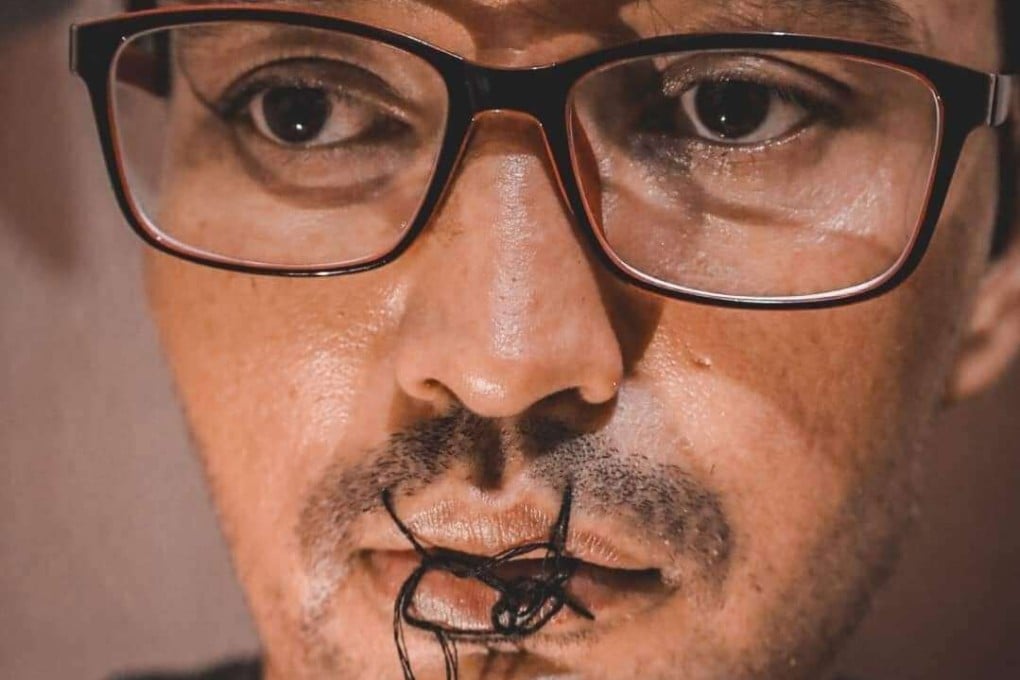Afghan refugees in ‘limbo’ in Indonesia sew their mouths shut in protest
- Demonstrations, including one in which a man set himself on fire, have taken place across the country as refugees despair at waiting years for resettlement
- There are some 13,000 refugees in Indonesia, but as permanent settlement is forbidden they must wait for a third country, such as the US, to take them in

“Absolutely it hurt,” he said. “It was so painful. But staying in Indonesia every day with no news is even more painful.”
“If UNHCR doesn’t want to help us then that is the best option. Instead of dying a little every day, it is better to die once,” he said.
The demonstration in Pekanbaru was part of a series of wider protests by Afghan refugees in cities across Indonesia in recent weeks, in a sign of increasing despair among the 13,000 or so refugees from places such as Afghanistan, Somalia and Myanmar, some of whom have been in limbo in Indonesia for over a decade.
It was so painful. But staying in Indonesia every day with no news is even more painful
In recent weeks there have been demonstrations in Pekanbaru, Makassar and Jakarta, with refugees taking to the streets with banners to demand resettlement in a third country and erecting temporary camps and sit-ins outside UNHCR offices.
